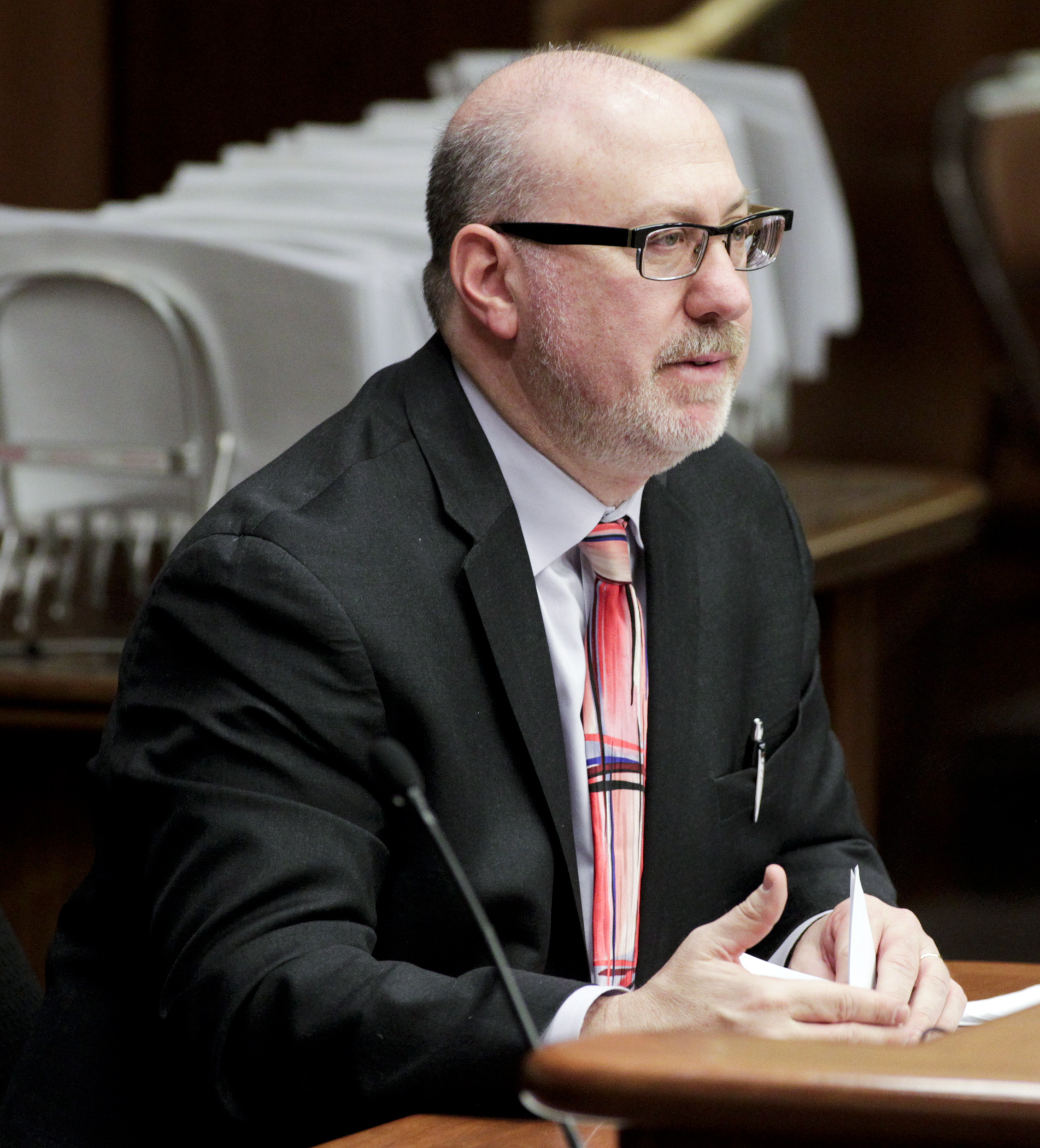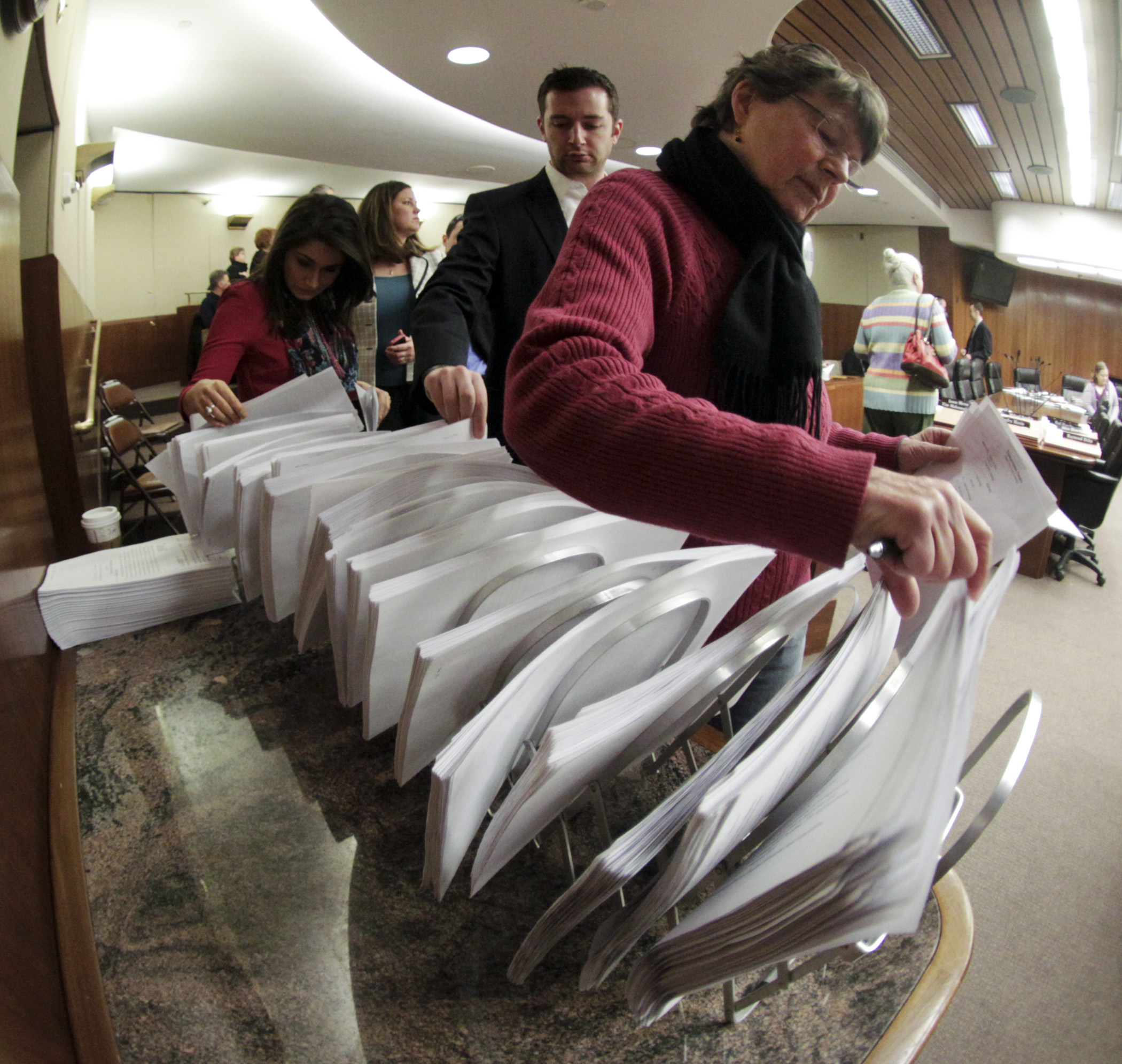Transportation budget targets potholes with emergency funds

(Updated 10:09 p.m.)
Emergency dollars for pothole-riddled Minnesota roads, more dollars for bus rapid transit routes and new railroad and oil transport safety standards are among the big ticket items lawmakers are pushing for in the House supplemental transportation budget bill unveiled Wednesday.
Approved Wednesday night in the House Transportation Finance Committee, the proposed $129 million budget would place an additional $49.6 million in General Fund revenue into the transportation budget for the current biennium.
Included is a measure that would allocate $15 million in one-time General Fund and state highway dollars to repair weather-beaten state highways, and county and city roads that officials said have been ravaged by brutal winter weather.
“Every Minnesotan has a story about the state of our roads right now,” said Rep. Frank Hornstein (DFL-Mpls), the committee’s chairman and sponsor of the bill, HF3260.
The proposed pothole funds are based on a bill sponsored by Rep. Barb Yarusso (DFL-Shoreview), who said she has heard multiple stories of bumpy rides and flat tires due to rough road conditions this year. She traced the problem to an underfunded state transportation system.
“When we defer maintenance, it makes roads extra vulnerable to harsh winters like this,” Yarusso said.
Counties and cities are forced to dip into annual maintenance budgets to cover the proliferation of potholes caused by the harsh winter, she said. Of the $15 million, $5 million in pothole funds would be directed toward county and local governments to help them avoid delaying other maintenance.
Rep. Mike Beard (R-Shakopee) said he had hoped House DFL leadership would direct more of the state's projected $1.23 billion surplus revenue toward the state's transportation needs. He opposed the bill.
"I wish your caucus would've thrown $200 (million) or $300 million of that surplus at transportation," Beard told Hornstein. "I think it's that important."
The bill is scheduled to be heard next Friday in the House Ways and Means Committee. A companion, SF2858, sponsored by Sen. D. Scott Dibble (DFL-Mpls), is also scheduled to be heard Friday in the Senate Transportation and Public Safety Division.
Transit funds, too
The state’s roads wouldn’t be alone in seeing new dollars — public transit would also see additional funding. The bill includes $15.4 million for use toward expanding arterial bus rapid transit routes and stations and improving existing transit shelters across the Metropolitan Council-run transit system.
“I took the bus quite often during those cold days and the existing shelter system didn’t do much to help (keep warm),” Hornstein said.
Other proposed expenditures include:
- $15 million for Corridors of Commerce, a competitive grant program established by the Legislature in 2013 geared toward making improvements on state roadways to improve the movement of freight and reduce barriers to economic growth;
- $14 million for improvements to Old Highway 14 as part of a Department of Transportation settlement with a pair of counties over MnDOT’s efforts to turn the road back to local authority; and,
- $5 million annually for snow plow equipment replacement.
Railroad, pipeline safety
The legislation also includes provisions that aim at increasing safety along the miles of Minnesota railroad track and pipeline that transport oil and other hazardous chemicals.
 Before committee begins March 26, lobbyists and members of the media sort through a rack of amendments to the omnibus transportation finance bill. Photo by Paul Battaglia
Before committee begins March 26, lobbyists and members of the media sort through a rack of amendments to the omnibus transportation finance bill. Photo by Paul BattagliaLawmakers last month heard from first responders and safety experts who said the state is unprepared for a major oil freight derailment like the one in Casselton, N.D. last year that sparked a massive fireball and spilled 400,000 gallons of crude oil.
Based on measures proposed in HF3133, HF3134 and HF3135, all sponsored by Hornstein, the bill would allocate $5 million for safety improvements to at-grade railroad crossings in corridors where oil and other hazardous materials are transported. It would also transfer $2.5 million from the state’s General Fund in 2015 to a newly-created railroad and pipeline safety account.
The number of state rail safety inspectors would expand from one to three, under the bill, with a fourth position permitted to be added after July 1, 2015. It would also include freight-hauling railroads in an existing state assessment to pay for costs related to state inspectors and require railroads to offer specific training to each fire department along the route of trains hauling hazardous materials.
Related Articles
Search Session Daily
Advanced Search OptionsPriority Dailies
Ways and Means Committee OKs proposed $512 million supplemental budget on party-line vote
By Mike Cook Meeting more needs or fiscal irresponsibility is one way to sum up the differences among the two parties on a supplemental spending package a year after a $72 billion state budg...
Meeting more needs or fiscal irresponsibility is one way to sum up the differences among the two parties on a supplemental spending package a year after a $72 billion state budg...
Minnesota’s projected budget surplus balloons to $3.7 billion, but fiscal pressure still looms
By Rob Hubbard Just as Minnesota has experienced a warmer winter than usual, so has the state’s budget outlook warmed over the past few months.
On Thursday, Minnesota Management and Budget...
Just as Minnesota has experienced a warmer winter than usual, so has the state’s budget outlook warmed over the past few months.
On Thursday, Minnesota Management and Budget...